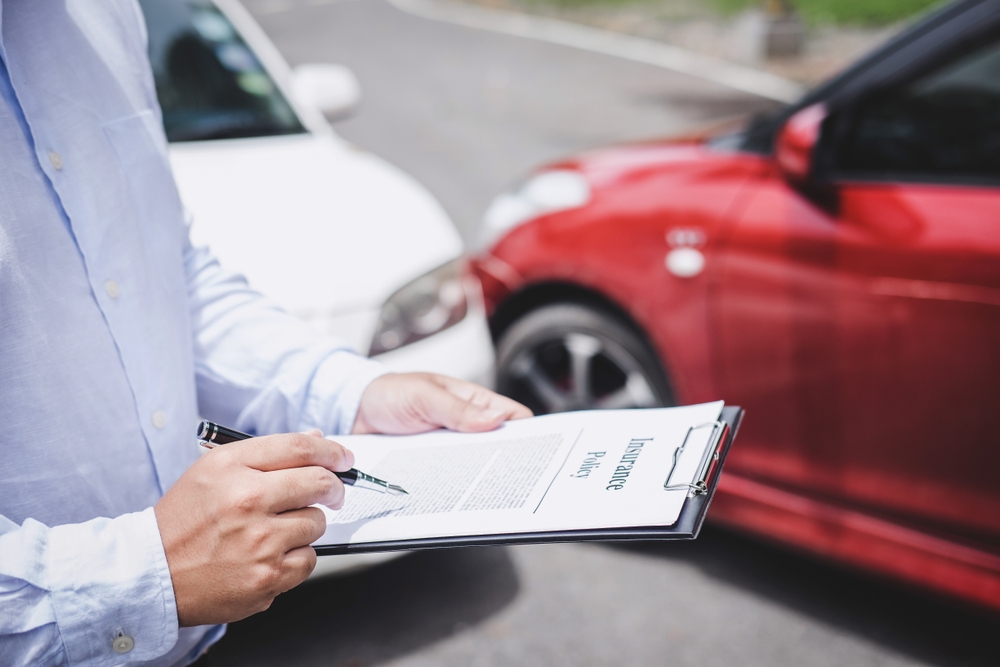
Car accidents can happen anywhere and often without warning. When they do, determining who is at fault becomes one of the most important factors in recovering compensation for your injuries. In Florida, that process is guided by the state’s comparative negligence law, which determines how much each party can recover based on their share of fault.
At Dan Stewart Law Firm, we understand how changes in Florida law can affect the outcome of your case. Knowing how comparative negligence works can help you protect your rights and take the right steps after a car crash.
Understanding Florida’s Comparative Negligence Law
Florida follows a modified comparative negligence system. This means that if you are found partly responsible for an accident, your compensation is reduced by the same percentage of fault assigned to you. For instance, if you are 20 percent at fault, your total recovery will be reduced by 20 percent.
However, under current Florida law, if you are found to be more than 50 percent at fault, you cannot recover damages from the other party. In short, if you are primarily responsible for causing the crash, you may be barred from collecting compensation altogether.
It is important to note that medical malpractice claims are treated differently and still follow pure comparative negligence. This exception does not change how comparative negligence applies to motor-vehicle collisions.
Additional Legal Changes You Should Know
Florida’s tort reform has affected more than just comparative negligence. The time limit to file most negligence-based personal injury claims has been shortened from four years to two years. This change makes it critical to act quickly after an accident so that important evidence is preserved and your rights are protected.
The reform also added new limits on how medical damages are presented in court, meaning the evidence used to prove medical expenses must now reflect actual amounts paid or owed rather than billed charges. These adjustments highlight the need for an attorney who understands how to navigate Florida’s updated legal landscape.
How the Law Affects Car Accident Liability
Before the change, Florida used a pure comparative negligence system that allowed injured victims to recover damages even if they were mostly at fault. Now, under the modified version, if your share of responsibility reaches 51 percent, you are no longer eligible to recover compensation.
This shift has made it easier for insurance companies to reduce or deny valid claims by arguing that injured drivers share a majority of the blame. Having an experienced Florida car accident lawyer who knows how to challenge these tactics can make all the difference in the outcome of your case.
Determining Fault After a Car Accident
Determining car accident liability requires careful investigation. Insurance adjusters and investigators look at a variety of evidence, including:
- Police reports and any citations issued.
- Photographs or video footage from the scene.
- Eyewitness statements.
- Vehicle damage patterns and skid marks.
- Cell phone data if distracted driving is suspected.
- Toxicology reports in cases involving alcohol or drugs.
- Expert testimony from accident reconstruction professionals.
At Dan Stewart Law Firm, our legal team manages every step of this process. We review the evidence, identify inconsistencies, and ensure the facts are presented accurately.
Examples of Shared Fault
Shared fault is more common than many drivers realize. Some examples include:
- Rear-end collisions: If you were rear-ended but stopped suddenly without signaling, both drivers may share responsibility.
- Left-turn crashes: When two vehicles enter an intersection, fault may depend on right-of-way and signal timing.
- Distracted or impaired driving: If one driver was texting and another was speeding, both could be partly at fault.
- Multi-vehicle accidents: When several drivers are involved, responsibility may be divided among multiple parties.
Even if you believe you may share some responsibility, that does not automatically disqualify your claim. As long as you are 50 percent or less at fault, you may still be entitled to compensation.
How Comparative Negligence Impacts Compensation
The percentage of fault assigned to you directly affects your recovery. For example:
- If you are 0 percent at fault, you may recover 100 percent of your damages.
- If you are 25 percent at fault, your compensation will be reduced by 25 percent.
- If you are 51 percent or more at fault, you are barred from recovering damages.
This calculation applies to all compensable losses, including medical bills, property damage, lost wages, and pain and suffering.
Why Having a Lawyer Matters
Insurance companies often use Florida’s comparative negligence law to minimize or deny valid claims. Adjusters may argue that you were distracted, speeding slightly, or failed to avoid the collision to increase your assigned fault percentage.
Our firm understands these tactics. When you work with Dan Stewart Law Firm, we:
- Conduct a thorough investigation to uncover the facts.
- Handle all communication with insurance adjusters.
- Work with experts to strengthen your claim.
- Negotiate for fair compensation based on the full extent of your losses.
- Take your case to court when necessary.
Our focus is on protecting your rights, ensuring you are treated fairly, and helping you secure the compensation you deserve.
What to Do After a Car Accident
The steps you take after a crash can influence the success of your claim. Here’s what to keep in mind:
- Call the police and obtain an official accident report.
- Seek medical care even if your injuries seem minor.
- Take photographs of vehicle damage, road conditions, and visible injuries.
- Exchange contact and insurance information with all involved parties.
- Avoid admitting fault or speculating about what caused the crash.
- Contact an attorney as soon as possible to discuss your options.
Reaching out to a lawyer early allows for prompt investigation and protects your ability to recover under Florida’s two-year statute of limitations.
Common Challenges in Car Accident Claims
Comparative negligence cases often involve disputes over evidence and liability. Some of the most common issues include:
- Conflicting witness accounts
- Incomplete or delayed police reports
- Lost or unclear dashcam footage
- Insurance company denials or delays
- Disagreements about medical treatment or damages
Our firm has decades of experience handling these challenges and knows how to respond effectively to protect your claim.
Why Choose Dan Stewart Law Firm
For more than forty years, Attorney Dan Stewart has represented injury victims across Florida. The firm is built on a foundation of trust, compassion, and dedication to achieving results.
Clients can expect:
- Personalized attention. Every case receives hands-on care and individual focus.
- Open communication. Calls are returned promptly, and clients are always kept informed.
- Proven experience. Our firm has helped countless individuals recover compensation after serious accidents.
- Strong advocacy. We are prepared to negotiate or go to trial to achieve the best outcome possible.
When you choose Dan Stewart Law Firm, you are choosing a team that treats your case like their own and stands by you every step of the way.
Talk to a Car Accident Lawyer Today
If you were injured in a crash and have questions about Florida’s Comparative Negligence Law, Dan Stewart Law Firm can help. We’ll review your case, explain your rights, and guide you through every step of the claims process.
Call 850-972-8002 or contact us online to schedule your free consultation. Speak with our Santa Rosa County injury attorneys today to protect your right to fair compensation.
Disclaimer: The articles on this blog are for informative purposes only and are no substitute for legal advice or an attorney-client relationship. If you are seeking legal advice, please contact our law firm directly.

